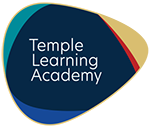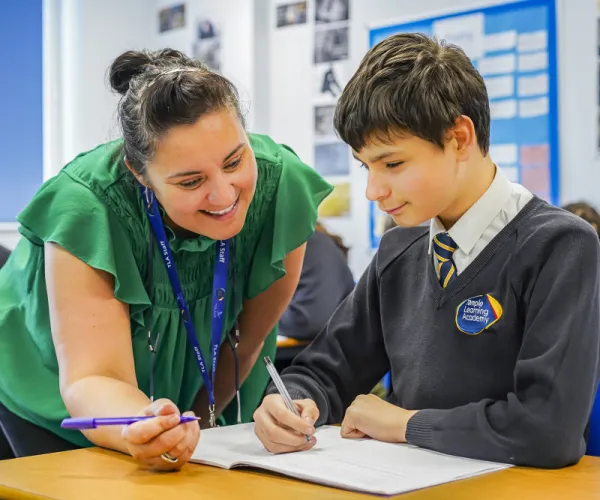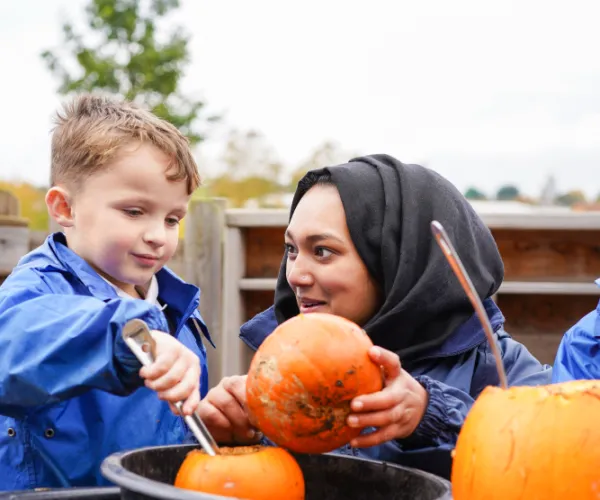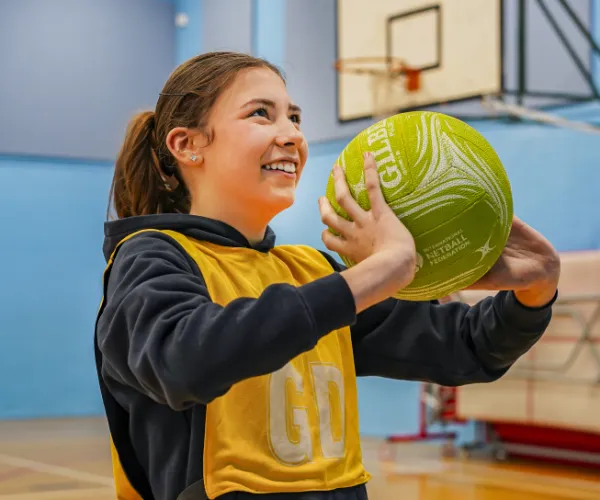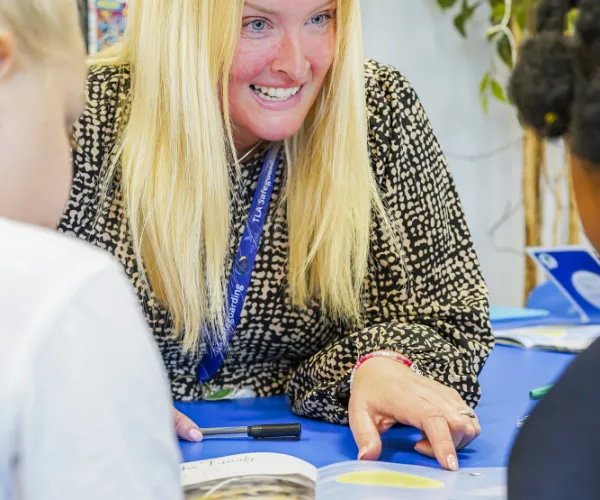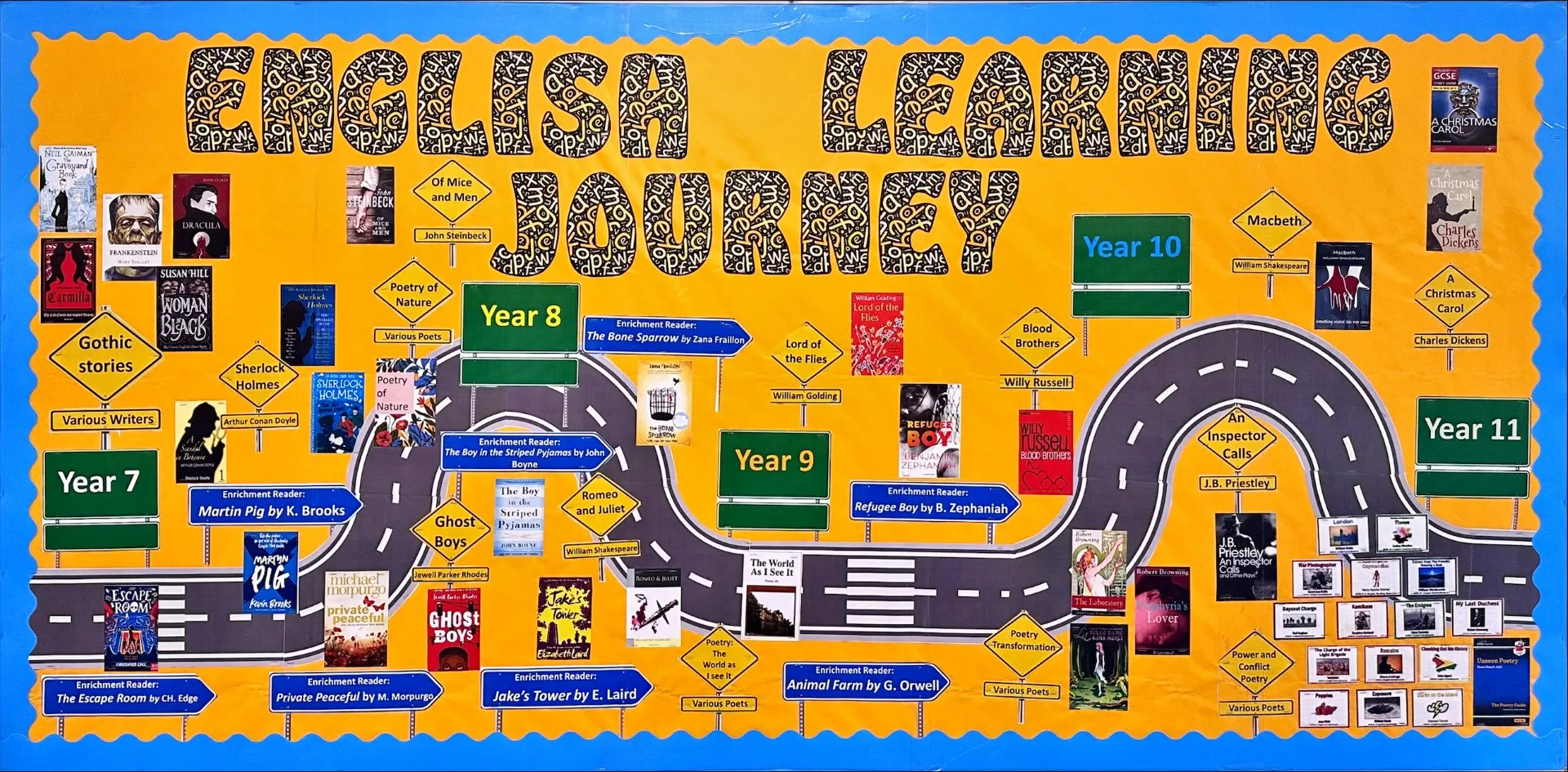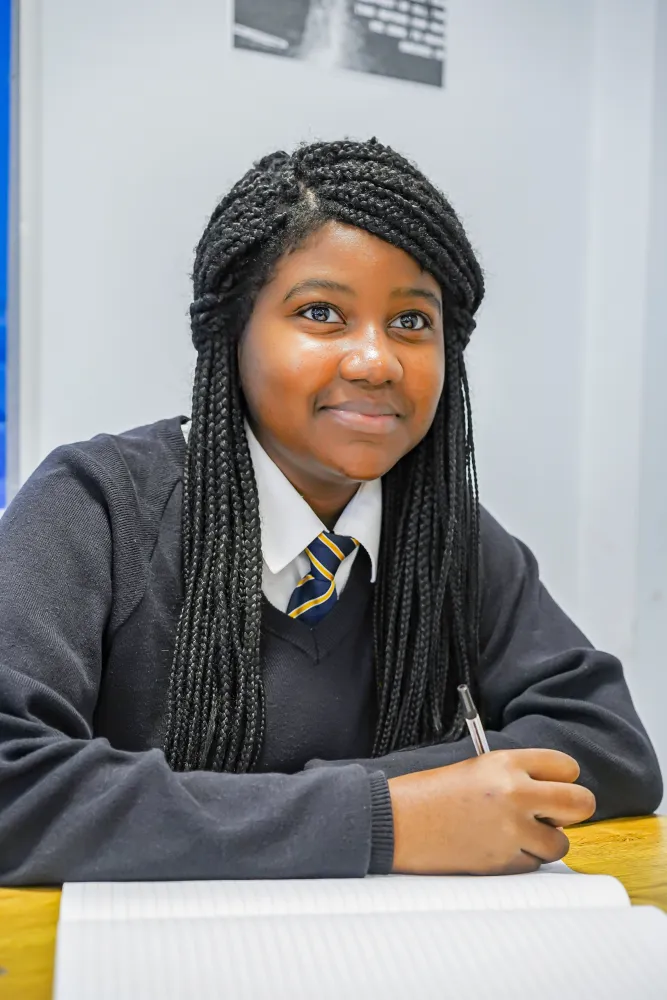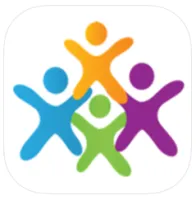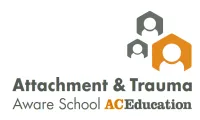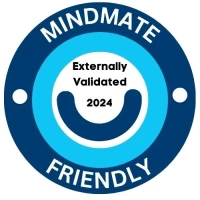Year 7
Students begin with comprehension, retrieval and inference skills through the exploration of the novel Private Peaceful. Throughout this unit, we consolidate KS2 learning and begin to look in depth at how and why authors make different choices. Students then go on a journey through the literary canon where they discover how our strong literary heritage developed from the myths and legends from the middle ages through to modern prose. Students then get to continue our literary legacy themselves by taking an adventure in creative writing where they will start to build up a writing toolkit that they will develop throughout their time with us at TLA. The next stop on our learning journey is a voyage into poetry where students will explore identity and culture while honing their analytical skills. The year culminates in an exploration of dramatic form where students will study A Midsummer Night’s Dream and find out how comedy works.
Year 8
Year 8 students begin with Ghost Boys, a modern novel which explores complex themes of loss, bias and familial love. This book allows for us to explore structure and characterisation. This is developed through the next topic where students add narrative writing skills to their toolkit and explore how they can utilise structure and characterisation for their own creations. We then delve into non-fiction where students learn how to articulate and justify their opinions all while building up a non-fiction writing toolkit. The summer term sees us study two plays: the stage adaptation of Noughts and Crosses and Romeo and Juliet. Throughout this term we will look at the thematic links between the two and the contexts which inspired them.
Year 9
The Year 9 English curriculum begins with an exploration of genre where we track how Gothic Fiction has developed through time from the height of its popularity in the Victorian era to the modern day. Year 9 will then study thematically linked poetry where they will start to develop their essay writing skills to deepen their analysis skills. Year 9 will then move onto Of Mice and Men, a classic text which allows students to understand a text as a construct to deliver a message. The writing toolkit is developed next with a unit of learning which helps students begin to carefully craft their creative writing and embed layers of meaning. Next students will study a range of non-fiction texts exploring the attitudes and perspectives of writers. The year culminates with the study of Blood Brothers, an exciting tale of fate and superstition.
